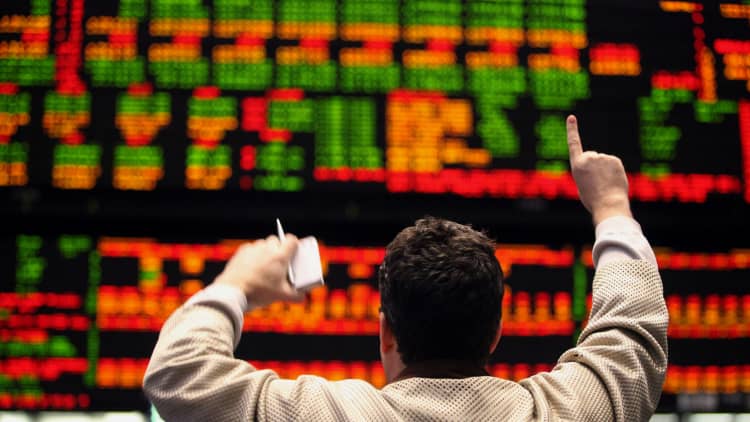
The Dow Jones Industrial Average fell from record highs on Tuesday amid losses in Home Depot and a reversal in Boeing shares while the broader market finished the session little changed.
The 30-stock average dropped 102.2 points, or 0.3% to 27,934.02. The S&P 500, meanwhile, closed marginally lower at 3,120.18. The Nasdaq Composite advanced 0.2% to 8,570.66, posting a fresh all-time closing high. The three indexes recorded intraday all-time highs during the session.
Home Depot shares slid 5.4% after disappointing same-store sales, a key metric for retailers, overshadowed better-than-expected earnings. The stock's decline shaved off 88 points from the Dow.
"However, we believe the backdrop is becoming more supportive for comp re-acceleration in conjunction with commodities re-inflating," said Piper Jaffray analyst Peter Keith in a note. "All in, while we expect fundamentals to improve."
Kohl's also tanked more than 19% on weak same-store sales.
Meanwhile, Boeing shares gave back a 1.5% gain after the National Transportation Safety Board recommended the airplane maker redesign the engine covers on thousands of its 737 planes. The stock in initially rose after Boeing wrangled up 50 orders for the embattled 737 Max jet at the Dubai Air Show. One order for 20 planes came from an undisclosed buyer while a Kazakhstan-based airline put in another one for 30 planes. The stock ended the day down 0.7%.
The major averages eked out record closing highs on Monday even as investors dealt with mixed signals on the U.S.-China trade front.
Mark Newton, managing member at Newton Advisors, said the S&P 500 is still "finding ways to push fractionally higher, despite negative breadth and evidence of near-term overbought conditions."
"Until trends show more evidence of weakening, the bulls are certainly right to stick with the ongoing uptrend," Newton said.
CNBC, citing a government source, reported that China is pessimistic about a trade deal with the U.S. This is reportedly due to different views on the cancellation of tariffs. Former White House chief economic advisor Gary Cohn told CNBC Monday that he believes President Donald Trump will go ahead with the Dec. 15 tariffs if the U.S. and China haven't agreed to a trade deal by then. Trump then said Tuesday he would impose even higher tariffs on China if a deal is not reached.
China and the U.S. have been engaged in a trade war for more than a year, tempering growth expectations for the global economy and corporate profits. However, optimism around a U.S.-China trade deal grew last month after Trump said a phase one deal would get signed sometime in November.
"I think that China, more than the U.S., needs this deal," said Kim Forrest, founder of Bokeh Capital. "I don't think it's going to be the end-all-be all, but some sort of deal will get done towards the end of the year or into next year."
"That's what this market is reacting to," Forrest said.
—CNBC's Silvia Amaro contributed to this report.


